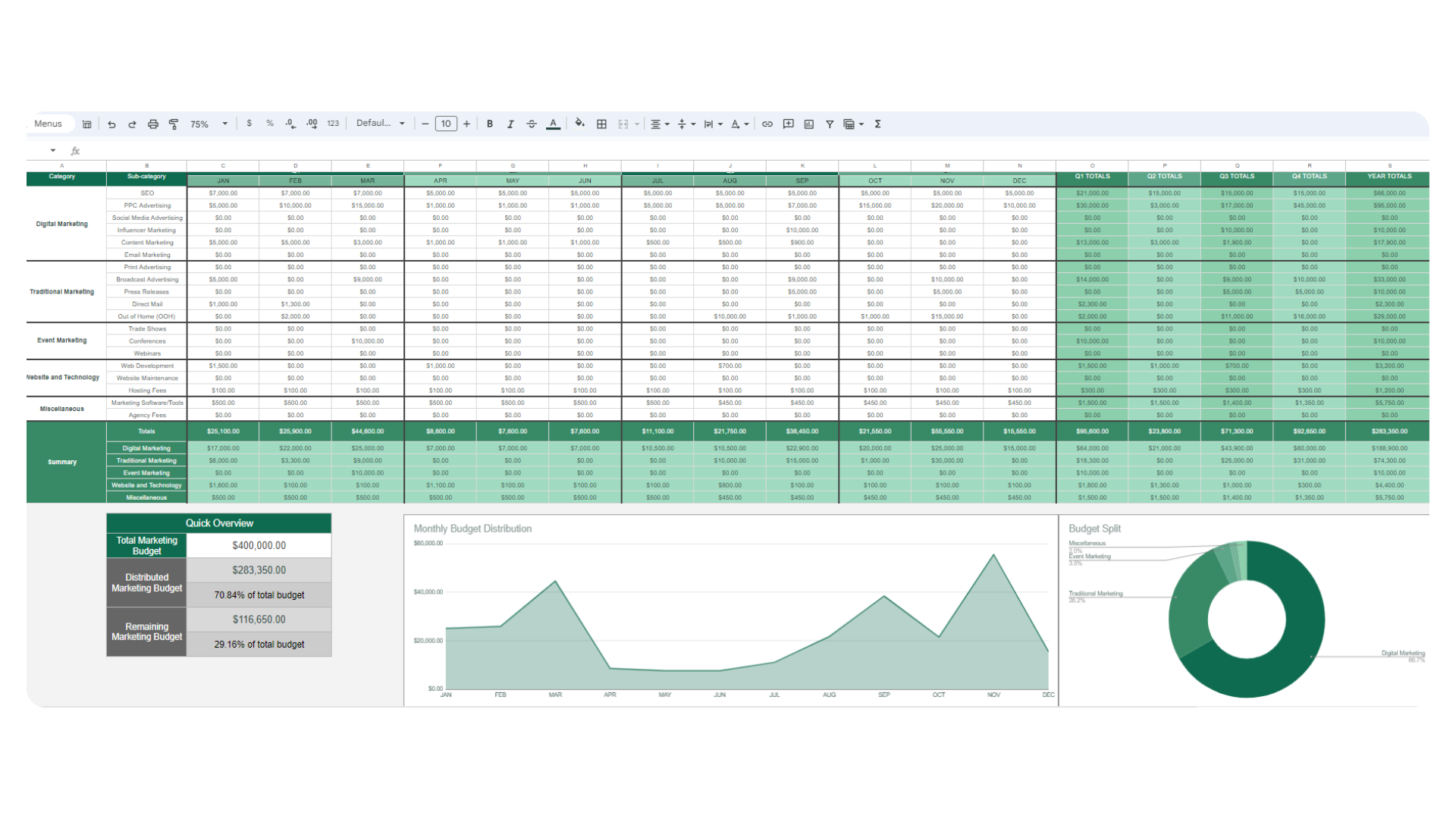Free Marketing Budget Plan Template: Download and Make It Your Own
If you want your business to do well, you need to manage your marketing budget. A good budget plan helps you spend money wisely, track expenses, and see if your marketing is working. We're sharing a marketing budget template (Google Sheet) that makes this easy. The template is simple to use and helps you plan your marketing costs without having to build an entire spreadsheet yourself.
How Do You Calculate a Marketing Budget?
To calculate your marketing budget, you can look at what your competitors are doing, analyze your past campaigns to see what worked, and make sure your marketing expenses line up with your business goals (E.g., Are you spending money on the right formats/channels?).
Now, let's break that down a bit more. Looking at your competitors can give you a general sense of where they're spending their budget, but don't expect to find the exact numbers. Tools like SEMrush or SpyFu can guesstimate online ad spend, but it's never 100% accurate.
Your own marketing history can be a goldmine (if you’ve been tracking your spend and results). Look into that data to spot the platforms, formats, audience segments or strategies that had generated great results in the past. If you discover that nothing delivered the results you wanted, re-distributing the marketing budget, and focusing on testing instead of immediate sales is likely the best way to go.
It's also important that you don't forget the big picture. Your marketing budget needs to correlate with your overall business goals. Make sure you’re focusing on the right KPIs (Key Performance Indicators), platforms and formats. For example, brands looking to increase brand awareness may be more likely to invest in TV or Radio whereas sales-driven campaigns would probably see better results from search or social media advertising.
The key is to stay flexible. Keep an eye on your data and pivot if you need to.
What is the Average Marketing Budget for a Small or Medium Business?
Small to medium businesses typically spend around 7-8% of their total revenue on marketing. That's the general rule of thumb. But that number can change based on a few things. Smaller businesses might spend a different percentage than medium-sized ones. Some industries are more competitive, so you might need to invest more in marketing to get noticed.
Your business's growth stage matters too. If you're in rapid growth mode and trying to gain market share, you may need to allocate a bigger chunk of your budget to marketing. But if you're already established, you might be able to get by with less.
So, while 7-8% is a solid starting point, it's not a perfect fit for everyone. Consider your company's unique situation - size, industry, and goals - and adjust your budget accordingly.
What Should Be Included in a Marketing Budget?
A marketing budget should include all the key elements of your marketing strategy. This means accounting for digital marketing expenses like SEO, PPC, social media advertising, content marketing, and email campaigns, as well as traditional channels like print ads, TV or radio spots, direct mail, and billboards. Don't forget to factor in any events you plan to attend or host, such as trade shows, conferences, or webinars. Website costs like development, maintenance, and hosting can be included too. Miscellaneous expenses like agency fees or marketing software and tools should also be included. As for salaries, it depends on your specific situation and needs. Some marketing plans include staff costs, while others focus solely on external expenses.
Ultimately, there are no hard and fast rules - it's about figuring out what you and your team want to achieve and adjusting your marketing budget to suit those needs.
We hope this Marketing Budget Template makes it easier to plan and manage your marketing spending. If you have any questions or need help with your digital marketing strategy, feel free to reach out to us at Three Chapter Media.
This article was written with the support of A.I. technology.


